| Topic: | Understanding climate through simple models |
| Date: | June 11th – 23rd, 2018 |
| Application timeline: | Application opens on February 18th |
| Application closes on April 10th | |
| Results will be announced by April 27th | |
| Participants: | The application is open to graduate students and postdocs. International candidates are also eligible to apply. |
| Description: | Rossbypalooza is a two-week long project-oriented summer school for people from a broad field of atmospheric, oceanic and planetary sciences. The goal is to provide a platform for interactions among students and faculty to understand the climate of Earth and other planets via simplified models. The school will consist of lectures and projects where participants will work in groups to address a question of their choice, mentored by one of the faculty members. |
Rossbypalooza is a bi-annual student-led summer school at the University of Chicago. It is named after the Swedish meteorologist Carl Gustav Rossby and Lollapalooza, the annual music festival of Chicago. Carl Gustav Rossby was the head of the department of meteorology in the University of Chicago when he did his pioneering work on the Rossby waves of Earth’s atmosphere. In the spirit of celebrating climate science with fun, Rossbypalooza brings together people from different fields to understand the climate of Earth and other planets. Check out the first Rossbypalooza (2016) here!
This year’s topic is “Understanding climate through simple models”. Numerical models play prominent roles in today’s climate research. With the advances in computational ability, climate models are run at increasingly high resolutions, combining different elements of the Earth system. While all this makes the models more realistic, it also tends to create a gap between ‘understanding’ and ‘simulation’. In other words, more realistic models do not necessarily mean enhanced understanding of climate. A model should be reasonably simple, or idealized, for satisfactory understanding.
The summer school will consist of lecture series by faculty in the first week, introducing their experience of tackling climate-related problems with simple models. However, the focus of the program is a hackathon, where participants will work in groups throughout the two weeks to solve problems with simple models in consultation with the faculty members. At the end of program, participants will present their results and get feedbacks from the faculty.
This school is open to 30 external graduate students and postdocs working in atmospheric, oceanic, sea ice, glacier, and (exo)planetary sciences. People interested in climate research with applied math or physics background are also encouraged to apply. Please contact us at rossbypalooza@gmail.com for further details.
Click on a faculty member to see their research interests and Rossbypalooza contributions!
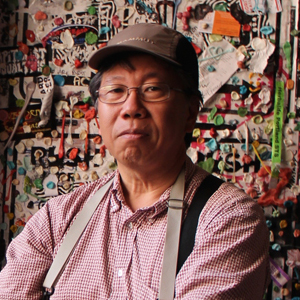
University of ChicagoFaculty and project mentorNoboru paragraph here |

University of ChicagoFaculty and project mentorMy research explores the physics of the atmospheric circulation from the equator to the pole and the surface to the stratosphere. My approach combines observational data analysis, theory and numerical modeling. My goal is to develop physical explanations for emergent observational and model behavior. For example, why do storm systems migrate northward seasonally in the Northern Hemisphere but not in the Southern Hemisphere? My research employs analytical models and numerical models across the model hierarchy (2D quasi-geostrophic, dry dynamical core model, gray radiation, prescribed SST aquaplanet, slab-ocean aquaplanet, atmospheric general circulation model and coupled climate model). |

University of ChicagoFaculty and project mentorI have an undergraduate degree in physics (2004, Harvard) and a PhD in applied math (2008, Harvard). I came to the University of Chicago as a Chamberlin Fellow and stayed on as a faculty member. I use mathematical and computational models to understand and explain fundamental problems in Earth and Planetary Sciences. I have worked on problems related to climate, paleoclimate, the cryosphere, planetary habitability, and exoplanets, but I'm always excited to think about new things. Recently I've been focusing a lot of effort on terrestrial exoplanets and habitability. |
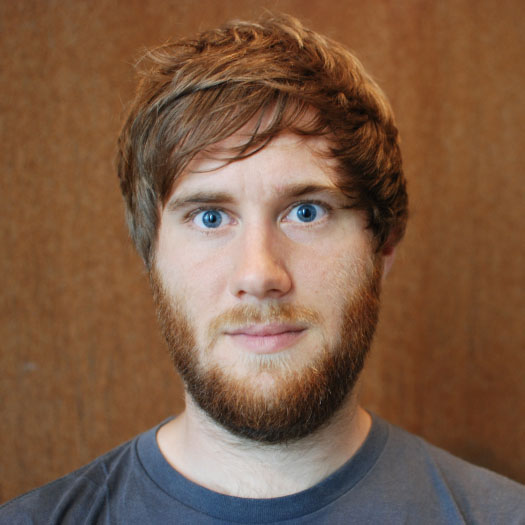
California Institute of TechnologyFaculty and project mentorJoern paragraph here |
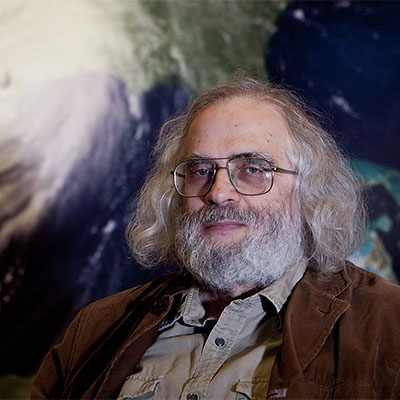
Princeton UniversityKeynote speakerIsaac paragraph here |
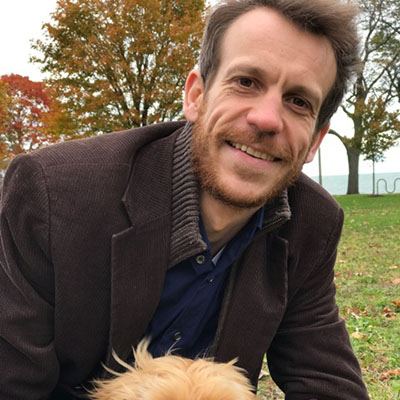
University of ChicagoFaculty and project mentorMy research aims to improve our understanding of the dynamics of the oceans, the atmosphere, and the coupled climate system. I am particularly interested in the processes that govern the fluxes of heat and other constituents in the ocean. Understanding the mechanisms of these transport processes is key to our understanding of changes in the climate system during Earth’s past and future. I tackle these questions using a combination of theoretical fluid dynamics, numerical simulations and analysis of observational data. |

University of ChicagoFaculty and project mentorI am a planetary geoscientist who studies the evolution of rocky and icy planets. I use models and geologic data analysis to solve problems relevant to long-term environmental evolution. Motivating questions: can we identify simple rules for planetary evolution? How do planets stay habitable? What are the modes of planetary surface-interior exchange? What does sedimentary-deposit accumulation on Mars record, and how can we read that record? Recently, I have built simple models to study long-term climate evolution on Mars and exoplanets. For more information and pdfs of publications, see sseh.uchicago.edu. |

Pennsylvania State UniversityFaculty and project mentorSukyoung paragraph here |
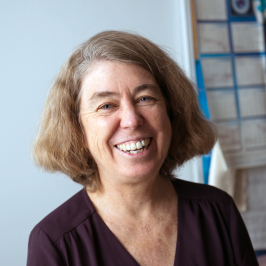
University of ChicagoFaculty and project mentorI’m an applied mathematician whose research expertise is in nonlinear dynamics. I’m interested in mathematical mechanisms behind abrupt, irreversible changes in system behavior, such as those caused by bifurcations as parameters drift, or those triggered by noise in a bistable system. Much of my research has also focused on pattern forming systems, with recent investigations of large scale spatial patterns of vegetation in dryland ecosystems. For example, in certain hot, flat, dry regions of the globe, vegetation forms in bands that alternate, approximately periodically, with bare ground; this is an example of spontaneous self-organization in response to the stress of aridity. Our studies have used both simple conceptual models of water-biomass feedbacks, and satellite image processing for regions in the Horn of Africa and Western Australia, where this phenomena is fairly pervasive. One question driving this research is whether these striking patterns, readily monitored by satellite, might tell us something about the vulnerability of these drylands to climate change or other mechanisms of desertification, such as shifts in human land use. |
Application opens on February, 18th
Application closes on April 10th
Click here to open the application!Rossbypalooza is free for all participants. This includes tuition, housing in Hyde Park, breakfast, and lunch. Funding for travel reimbursements is available for some applicants, especially for groups underrepresented in climate sciences (e.g., women, people of color, people with disabilities, and LGBTQ scientists/students). Please indicate your membership in any of these groups, as well as your desire for travel reimbursement, in the application form.
Rossbypalooza will be held on The University of Chicago campus in Chicago's historic Hyde Park neighborhood. Midway Airport is connected directly to Hyde Park by the #55 bus. For those flying into O'Hare, take the Blue line to downtown Chicago, and then transfer to the # 2 / #6 bus, which go to Hyde Park. Uber and Lyft also serve the city of Chicago, between airports and the campus.
All students will be housed in single rooms in the historic International House building (1414 E 59th St, 60637) on The University of Chicago campus in Hyde Park. Rooms are fully furnished, each with an extra-long twin bed, desk, chair, dresser, bookshelves, and wardrobe, and share a common floor bathroom. If you have any questions or special housing needs, please contact us directly at rossbypalooza@gmail.com.
Breakfast and lunch will be provided in the university cafeteria, Bartlett Dining Commons, each weekday. A welcome dinner will be provided on Monday the 11th, and a celebratory dinner will be held on the last night, Friday the 23th. On all other nights, participants are responsible for their own dinner. Hyde Park has many wonderful restaurants, including Seoul Corea, the Nile, Yusho, Maravilla's, Snail Thai, Rajun Cajun, Noodles, Etc. and the one and only Medici's. For late-nighters, there's a 24-hour diner, Clarke's.
Rossbypalooza is dedicated to providing a harassment-free workshop experience for everyone, regardless of gender, gender identity and expression, sexual orientation, disability, physical appearance, body size, race, age or religion. We do not tolerate harassment of workshop participants in any form. Workshop participants violating these rules may be sanctioned or expelled from the workshop at the discretion of the workshop organizers. Read the full code of conduct here.
Details about lectures, hackathon problems and schedule will be available to the selected candidates.